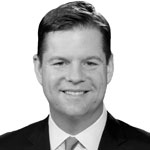By now, most of us are aware of the incomprehensible tragedy that occurred on the night of July 1, at Pier 14, with the murder of Kathryn Steinle. As a parent of three young children, my heart and prayers are with Kate’s friends and family, and I simply cannot imagine the grief they have been enduring. Every crime, and especially violent crime in San Francisco, is unacceptable, and we have to ensure that public safety remains a top priority here in our city.
The tragedy at Pier 14 garnered our nation’s attention, and much of it has focused on our city’s sanctuary city policy. As the discussion of this tragedy has evolved over the past few weeks, much has been focused on the alleged murderer Juan Francisco Lopez-Sanchez’s immigration status. But from my perspective, much of the discussion shortsightedly has focused on this tragedy as an immigration issue, while it should be properly discussed as a public safety issue.
Over the past weeks, we have seen a public back-and-forth between the sheriff, our mayor, and the Deputy Sheriff’s Association ending for the time being with a July 16 request from the sheriff both for a public hearing with the mayor to discuss these policies, as well as legislative clarity from the Board of Supervisors. What we do not need in the aftermath of this tragedy is hysteria and another public spectacle at City Hall. What we have needed is a thoughtful look at what happened, and a common-sense approach to prevent this situation from happening again in our city.
In response to the sheriff’s request for legislative clarity, I introduced a package of public safety reforms at the July 21, 2015 Board of Supervisors meeting. First, I introduced legislation affirming the Board of Supervisors’ support for our Sanctuary City and Due Process for All ordinances, and urged the sheriff to immediately rescind his department-wide gag order barring any communication with federal immigration authorities. Unfortunately, our sheriff chose to implement additional ideological policies for his department that fly in the face of not only our local laws but federal law as well, and it must come to an end.
Second, I am working on legislation that would require the sheriff to coordinate and check with the district attorney’s office to ensure that they plan to prosecute the individual before expending public resources to transfer an inmate from outside of San Francisco. Again, our sheriff has this discretion, and we want and trust that our local law enforcement will practice good judgment. But, if not, we should codify this policy into place that would have prevented Mr. Lopez-Sanchez from returning to San Francisco.
And, lastly, I submitted a Letter of Inquiry to the sheriff asking why Mr. Lopez-Sanchez was held for more than two-weeks seemingly in violation of the Fourth Amendment and our Due Process for All ordinance. In the United States of America, we do not hold people without cause. And if we want to build more trust between our immigrant communities and local law enforcement here in our city, we have to prove and show that they will not be held without cause, or against their will.
Let me be clear: our sanctuary city policy, in place since 1989, does not and was never intended to serve as a shield for criminal behavior in our communities. Our city’s sanctuary city policy, backed by solid empirical evidence, has improved public safety citywide by building trust between immigrant communities and local law enforcement, and it has even been endorsed as a public safety best practice by the International Association of Chiefs of Police. More than 320 jurisdictions throughout the United States have versions of sanctuary city policies in place, because just like in San Francisco, they have served as a pillar of public safety policy in their respective communities.
One of the important pillars of our sanctuary city policy, codified in federal law, is discretion given to law enforcement personnel to communicate with other law enforcement agencies. Both our sanctuary city and due process ordinances seek to proscribe limitations in certain circumstances, but it is simply impossible to proactively legislate every situation that our public safety leaders and personnel will encounter; there is no way we as a board, or the mayor, could have anticipated the circumstances surrounding Mr. Lopez-Sanchez’s presence in San Francisco, and there are sure to be similarly unforeseen circumstances in the future.
Our sanctuary city policy has served us well over the decades, and we need to stand behind this policy and our immigrant community, as well as the due process ordinance. However, if our public safety leaders are not appropriately handling the discretion proscribed by our federal and local laws, we need to take a hard look at other measures to ensure similar incidents never happen again in San Francisco. Public safety must be a top priority of ours at City Hall, and I look forward to further discussion in the weeks to come.




